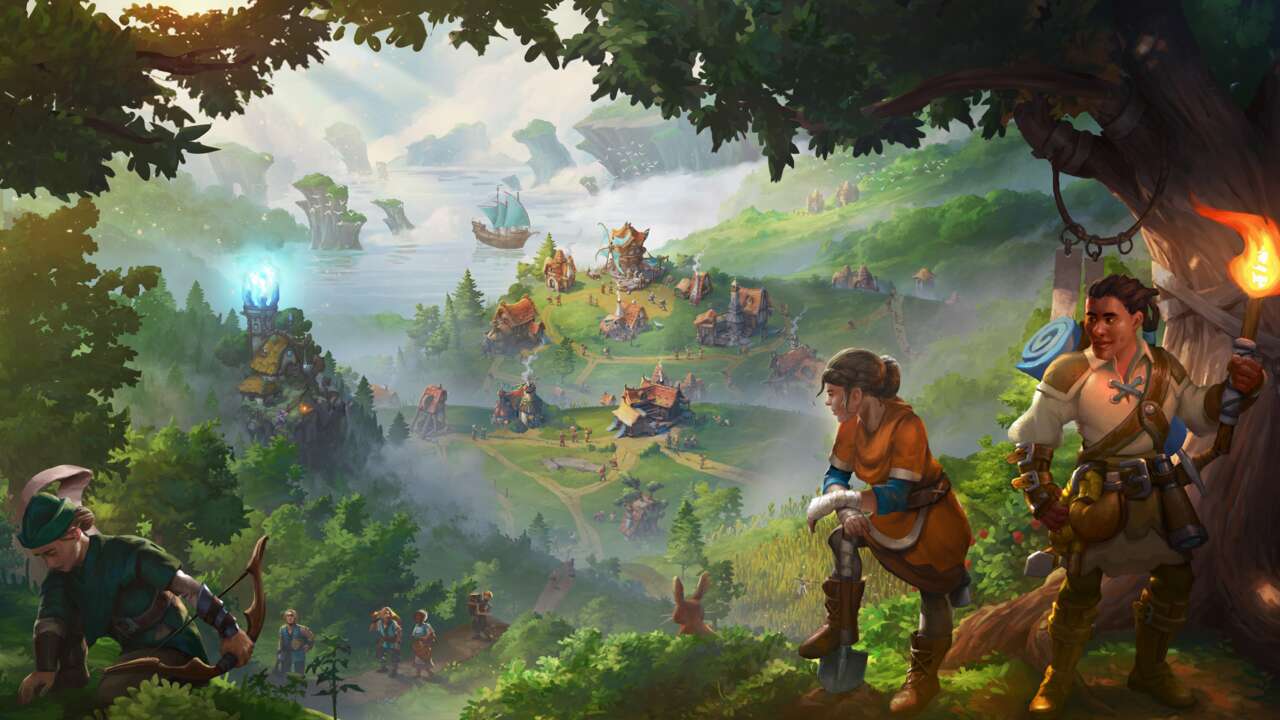Last week, Volker Wertich, creator of Ubisoft’s city-building simulation series The Settlers, and his new studio, Envision Entertainment, announced. Pioneer of Pagoniais an all-new entry into the city sim genre.
Set on Pagonia Island, players create new settlements using dozens of buildings and goods offered throughout their adventure. Goods are found by exploring procedurally generated islands. Each island has both abundant resources and unknown dangers.
After the game was published, I had the opportunity to speak with Wertich about how he’s approaching this new title, including some insight into the game’s procedural generation. He says that using that method of level building is a change of philosophy for him, but an important one for Pioneers of Pagonia.
We also talked about the elements and lessons learned from Wertich’s experience in the realm of city building that influenced the development of the game. Finally, Wertich stresses the importance of hiring a team of developers who are experts in this area. This allows the team to worry less about the underlying system and focus on more unique ideas.
Pioneers of Pagonia will be released in PC Early Access later this year, with a full release date to be announced at a later date. This interview was conducted by email and edited for clarity.
GameSpot: In developing this new game, what elements of your previous games did you want to include here, and where did you decide to try something new?
Volker Weltich: All Pioneers of Pagonia game systems are newly designed and offer a new experience. This includes exploration, territorial acquisition, construction, transportation, assigning jobs to units, food supplies, conflicts, trade, objectives, and more. Everywhere we try something new, but it’s invented and inspired by the same person, so of course there’s a connection to my previous games. Examples of new features include a treasure hunter that lets you find lost valuable objects, a trading system that lets you trade certain goods with NPC factions on the map, and the trust of peaceful inhabitants instead of conquering everything. There is an overall goal of getting
How did having a team with experience in the sim genre help the whole process? Given that the group knows the basics of how sims work, their collective background Allows for more creative experimentation?
We are a small but ambitious team of 20 developers with a great mix of highly experienced industry veterans and talented young developers. Half of the team has his 20+ years experience in developing strategy games that are our foundation. As you can imagine, I’m not worried about implementing the core system. This gives us room to tackle ambitious goals like increasing the total number of units, experimenting with new game systems for transportation, trading, and exploration, and enhancing procedural content rules for greater replay value. is born.
What challenges or pitfalls in the sims genre are you trying to avoid here? How do you do it?
We are aiming for an Early Access release by the end of 2023. In other words, it should offer a core gameplay experience that is replay-worthy and exciting at that point in time. On the other hand, we are a small team. That means we need to focus on cooperative gameplay instead of PvP, procedural content instead of campaigns, and one-player factions involving many production chains. The biggest pitfall is choosing the wrong battle on the first release.
How does using procedurally generated regions change the design philosophy of such sims? How does the team capitalize on that unpredictability?
Procedural generation of content is a very powerful tool and has already become very important in many games. Some people mistake procedural generation for complete randomness. Instead, we have a set of rules designed to create interesting content, meaning that the quality of content can be continuously improved through better rules and algorithms.
Pioneers of Pagonia is a simulation with various interconnected game systems that lends itself well to procedural content. Procedurally generate map layouts and terrain distributions, resource quantities and allocations, locations of hostile and friendly inhabitants and their objectives. The combination of these challenges will be unique to each map. Another advantage of procedural content is that it can lead to unusual situations that the level designer never thought of.
Finally, what should fans of previous sim games like Settlers expect from this new game? Will there be a new learning curve, or is it a quick dive?
In Pioneers of Pagonia, players experience an enchanting ant hill of thousands of bustling units. These units carry out orders without being ordered individually or directly. The dynamics of all interconnected game systems yields proud achievements when things go according to plan, leading to unexpected surprises that challenge players every time.
Early in the project, we defined the DNA of the Pioneers of Pagonia. One of which is his self-explanatory gameplay and presentation. Ideally, you should be able to see everything in the game world. All processes of transportation, resource gathering and production are visualized in detail. This allows anyone to start building and experimenting immediately.
The products featured here have been independently selected by the editors. GameSpot may receive a portion of the proceeds from purchases featured on our site.
https://www.gamespot.com/articles/how-pioneers-of-pagonia-expands-the-city-builder-through-procedurally-generated-challenges/1100-6511539/?ftag=CAD-01-10abi2f How Pagonia Pioneers Scale City Builders Through Procedurally Generated Challenges
